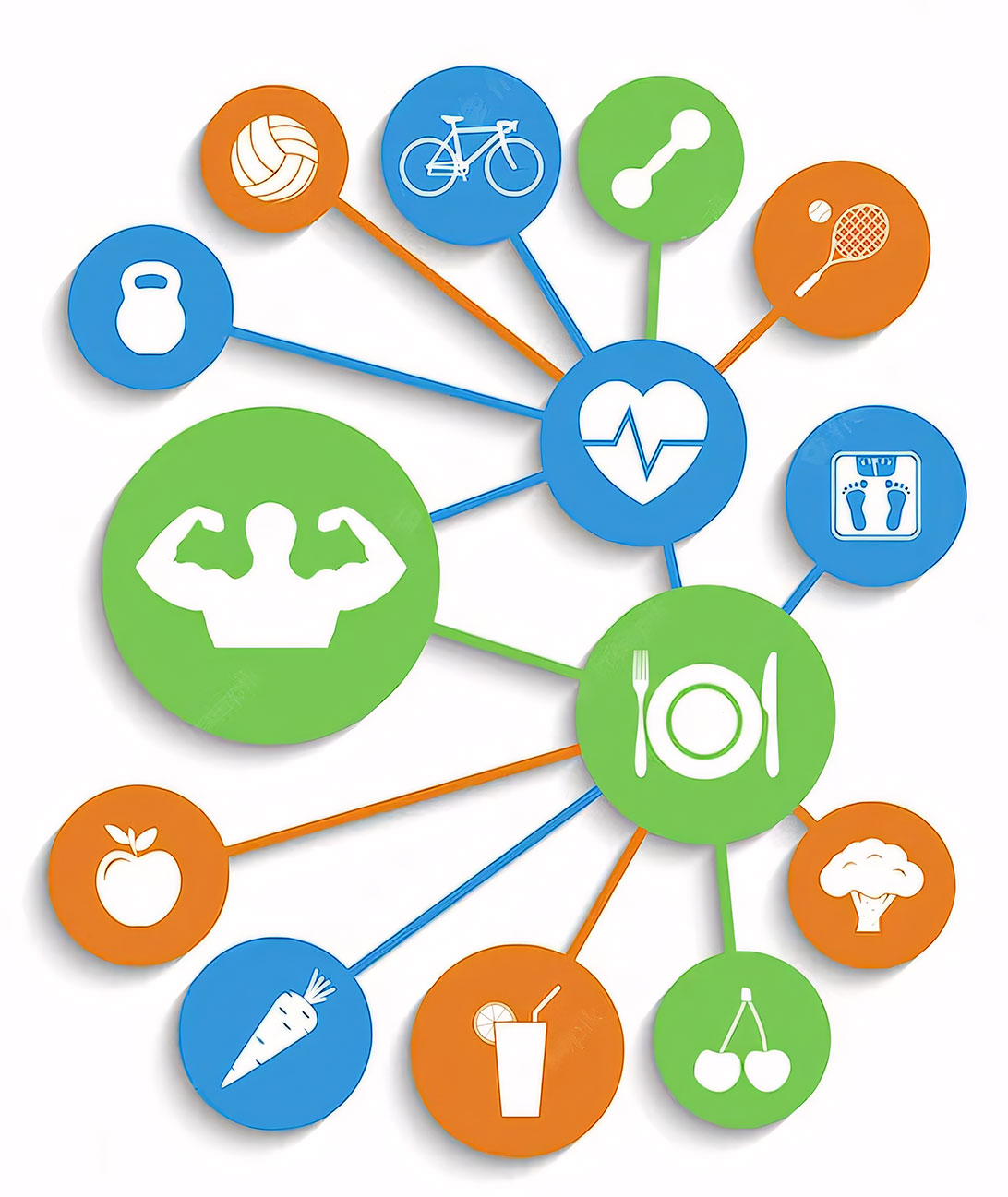Attaining fitness isn’t just about lifting heavy weights or finishing marathons. It also involves achieving health-related fitness that enriches your life. But, you may wonder, what are health-related fitness components, and why should everyone care about them? This article explores the significance of health-related fitness, its benefits, components, and enhancement strategies.
Table of Content
- The Benefits of Health-Related Fitness
- The Components of Health-Related Fitness
- Improving Your Health-Related Fitness
- Examples and Case Studies
- Conclusion
The Benefits of Health-Related Fitness
Health-related fitness refers to a state of wellness where you possess the strength, endurance, and flexibility needed for daily tasks. But what benefits can you expect from this aspect of fitness? The physical perks include improved heart health, decreased risk of chronic diseases, and increased lifespan. On the mental side, you can enjoy reduced stress, a better mood, and increased self-esteem. Furthermore, health-related fitness promotes better sleep, increased energy levels, and overall life quality.

The Components of Health-Related Fitness
What components make up this fitness aspect? They form the vital parts of fitness that contribute to overall health and wellbeing. These include:
- Cardiorespiratory endurance: It measures your heart and lungs’ health and your ability to engage in prolonged physical activity.
- Muscular strength: It involves your muscles’ capacity to exert force for a short period.
- Muscular endurance: It is your muscles’ ability to perform without fatigue over time.
- Flexibility: It measures the range of motion at your joints.
- Body composition: It refers to the ratio of fat to non-fat mass in your body.

Improving Your Health-Related Fitness
Improving this aspect of fitness might feel like a daunting task. But with the right strategy, it can turn into a rewarding journey. Here are some strategies:
- Engage in regular physical activity: This can include exercise, sports, or even daily activities like walking or gardening.
- Follow a balanced diet: Nutrition plays a vital role in fitness. Strive to include a variety of foods from all food groups in your diet.
- Stay hydrated: Water is essential for many bodily functions, including regulating body temperature and lubricating joints.
- Ensure you get enough sleep: Quality sleep is vital
- Ensure you get enough sleep: Quality sleep is vital for recovery and maintaining optimal health and fitness.
- Manage stress: Chronic stress can affect your physical and mental health. Try incorporating stress management techniques into your routine, like yoga, meditation, or breathing exercises.

Examples and Case Studies
Health-related fitness boasts of proven benefits. Let’s consider some real-world examples and case studies that highlight health-related fitness’s importance.
The American Heart Association states that individuals maintaining good fitness levels are less likely to develop heart disease compared to those who are unfit. A study in the Journal of the American Medical Association found that individuals with higher muscular strength face significantly lower risk of death from all causes, including cardiovascular disease and cancer.
Regarding mental health benefits, a systematic review in the Journal of the American Geriatrics Society discovered that physical activity reduces the risk of cognitive decline and dementia in older adults.
Conclusion
So, what are health-related fitness and its importance? It’s not just about looking good; it’s about feeling good and enhancing your life quality. It’s about performing daily tasks with ease, reducing the risk of chronic diseases, and boosting mental health. Above all, it’s a lifelong journey towards wellbeing and vitality, one that is accessible and necessary for all.







